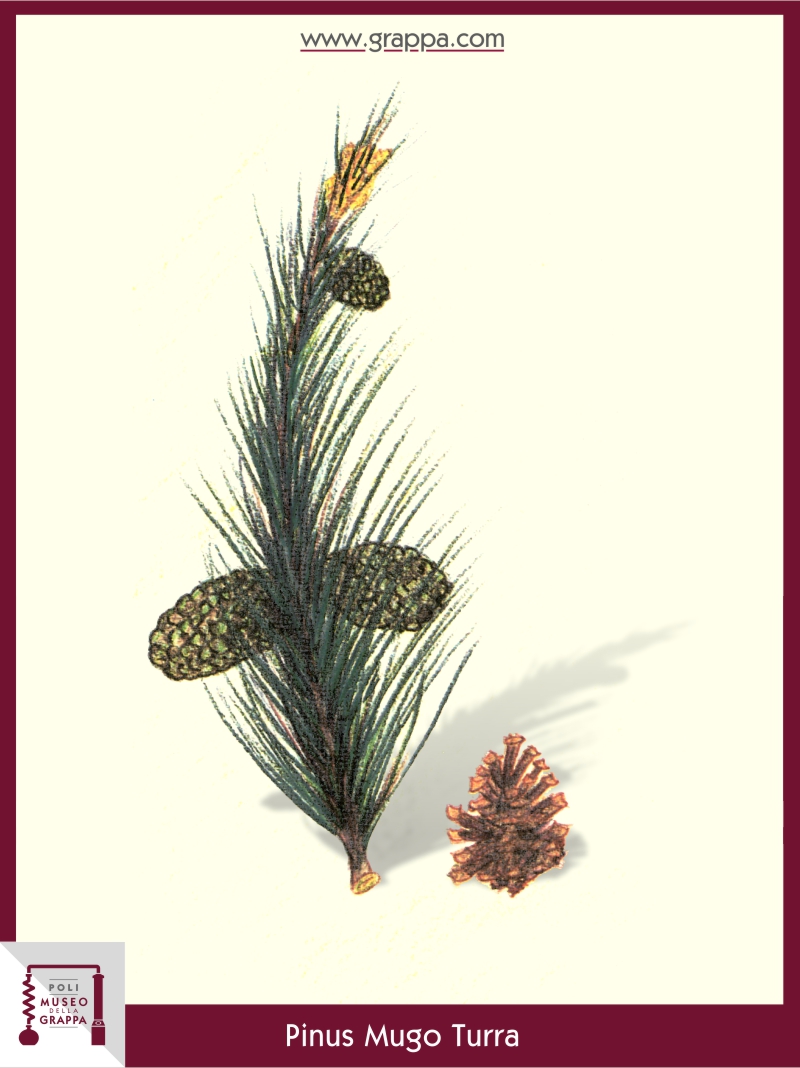The Grappa of the mountains
- Plant: Creeping Pine, Mugo Pine (Pinus Mugo Turra)
- Plant part: pine cone
- Plant feauters: anti-inflammatory, expectorant, balsamic, disinfectant

-
Description:
The Creeping Pine has been known for the fragrant liquid for a long time, obtained from the distillation of the cones and small branches. The essential oil was used as a balm for respiratory diseases.
The bud was used to produce syrups and alcoholic drinks, which had the effect of facilitating bronchial secretion, which was later confirmed by the techniques of modern distillation.
The "steam distillation" of the needles and cones produces an essential oil rich in pinenes, limonene and boron acetate; Those substances which show a direct therapeutic effect with respect to the respiratory tract.Compared to other conifers, the creeping pine is unique in its kind, since it grows as a low bush, winded and sometimes very close to the ground, on rocky slopes of the high mountain range and has an extraordinary ability to survive.
The mountain population has always used its "cones" to make sugary curative drinks, but above all, aromatized Grappas, which in reality are also used as medicines.
This is the most popular remedy ever, which is both "alcoholic beverage" and "medicine".
The recipe
-
Ingredients:
- 15 still green cones of the creeping pine
- 1 liter of Grappa -
Preparation:
You should pick up about fifteen still green "cones" in spring, cut into four parts, placed for at least three months in a liter of Grappa, while the so obtained liqueur has to age after the filtration for five months, until it has assumed a brown, rather dark color.
The taste, which is typically bitter, may be sweetened with a little dissolved sugar in warm water.
Poli Distillerie and
Poli Grappa Museum
Newsletter
Subscribe our newsletter to keep up to date with our latest news.